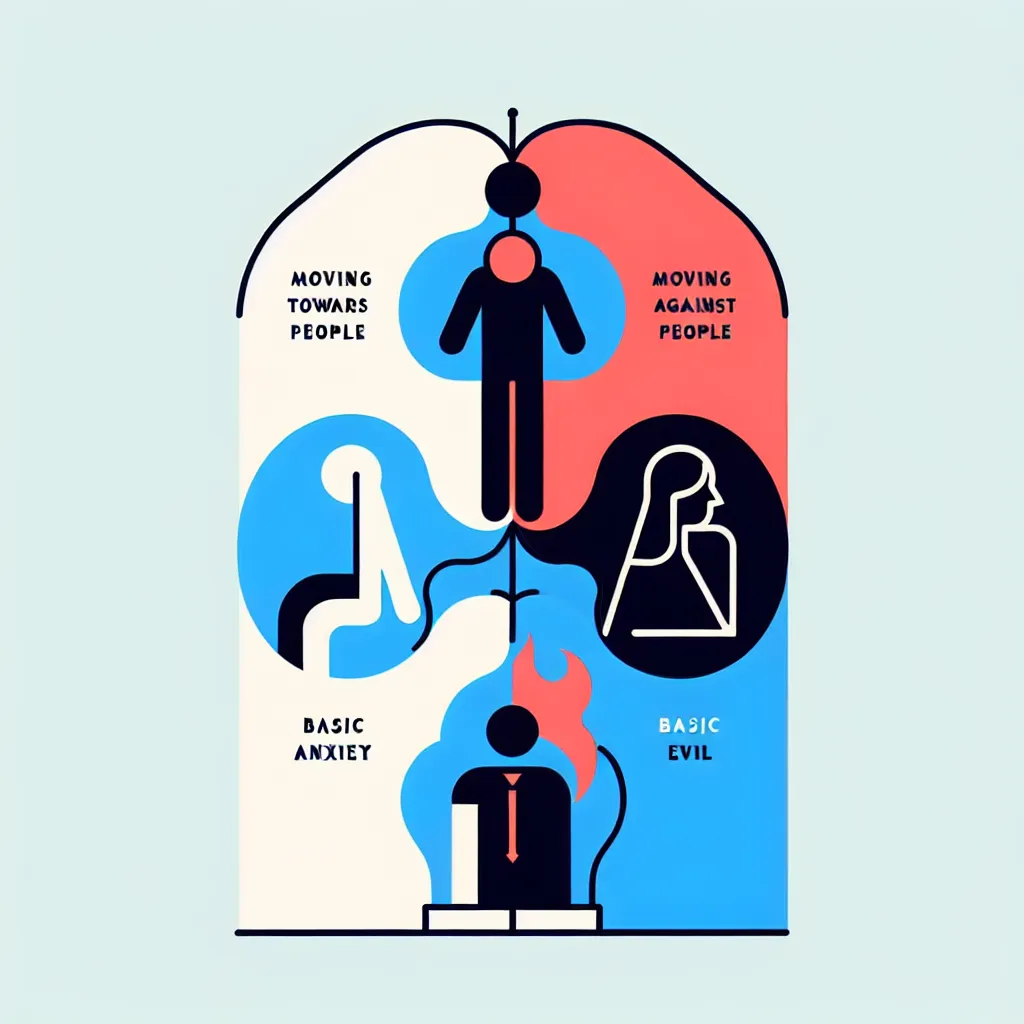Karen Horney stands out as one of the most influential psychoanalysts of the twentieth century, whose trailblazing work has left a lasting imprint on the understanding of the human mind. Her innovative approach to psychoanalysis and psychology spearheaded the movement away from traditional Freudian thought, offering a more balanced perspective on personality development and neurosis. Horney’s contributions to psychology have continued to shape contemporary psychoanalytic theory and practice, underscoring the importance of social and cultural influences on personality development.
Horney’s groundbreaking theories on neurotic personality structure and her discussions on self-theory project a vivid exploration of the complexities of the human psyche. She delved into the realm of interpersonal relationships and their influence on an individual’s development, emphasizing the social aspects that Freud had largely ignored. Horney proposed that cultural and environmental factors play a significant role in shaping our behavior and personalities, thus pioneering a relational approach in psychology.
One of Horney’s key contributions was the concept of basic anxiety, which she described as a feeling of being isolated and helpless in a potentially hostile world. This basic anxiety, according to Horney, stems from early childhood experiences, and particularly from the child’s perception of parental behavior. Contradicting Freud’s emphasis on innate drives, Horney believed that a child’s perception of safety and insecurity in their environment had a profound impact on their later mental health.
Additionally, Horney introduced the idea of “neurotic needs,” which are irrational defenses that become a persistent part of personality in an attempt to manage basic anxiety. These needs are categorized into three neurotic trends—moving toward, moving against, and moving away from people. She argued that individuals adapt to their environments by adopting one of these trends, which shapes their interactions with others and informs their approach to life’s challenges.
Another noteworthy aspect of Horney’s work was the challenge she posed to Freud’s theory of penis envy. She countered that women’s feelings of inferiority were not due to their anatomy but rather to the socio-cultural undervaluation of women. Horney introduced the concept of “womb envy,” suggesting that men might experience envy over women’s capacity for motherhood, thus contributing to societal pressures and creating an imbalance in gender relations.
Horney’s theories of self-realization and actualization emphasize the importance of achieving one’s potential and personal growth as key elements of mental health. She believed that individuals have an innate drive toward self-realization and that problems arise when social conditions impede this growth. To Horney, the self is not a static entity but an ongoing process of development, influenced by one’s experiences and relationships.
Karen Horney’s contributions extend beyond her immediate impact on psychoanalysis. Her insights into the cultural dimensions of psychological development have influenced numerous other fields, such as anthropology, sociology, and feminism. The nuances of her self-theory and emphasis on personal growth continue to resonate with therapists and patients alike, as they navigate the complex terrain of the human psyche and strive for self-understanding and health.
In her clinical work, Horney was known for her compassionate and empowering approach to therapy. She prioritized understanding each individual within their unique social and cultural context, and this patient-centered methodology has influenced contemporary therapeutic practices. Horney’s approach to therapy was characterized by her belief in the patient’s capacity for change and growth, and her advocacy for a warm, empathetic therapeutic environment.
Moreover, Karen Horney’s scholarship has had a profound impact on the development of feminist psychology. Her critique of Freud’s theory of female psychology opened the door for more equitable and accurate considerations of women’s psychological experiences. Horney’s work empowered countless women to re-evaluate their roles in society and to challenge the traditional norms that have long governed gender dynamics.
Despite facing significant resistance during her career, predominantly from male colleagues in a heavily patriarchal field, Horney’s unyielding pursuit of her theories demonstrated her resilience and dedication to advancing psychological understanding. Her legacy lives on in the countless mental health professionals and theorists who have been inspired by her holistic approach to the human mind.
In the realm of education, Horney’s theories are widely taught in psychology courses, from introductory classes to advanced seminars in psychoanalytic theory. Her emphasis on the influence of culture on personality invites students to consider a more expansive view of human development, one that accounts for the myriad factors that shape individual lives.
Horney’s contributions to our understanding of the human mind also include her lesser-known yet impactful suggestions on therapeutic education. She believed in the value of teaching individuals about the principles of psychology and self-awareness, so they could better understand their own behaviors and navigate their relationships with healthier patterns.
The relevance of Karen Horney’s work is not limited to her time but continues to be applied and reinterpreted by modern-day psychoanalysts and therapists. The dynamic nature of her theories means that they can be adapted to the ever-changing landscapes of society and culture, supporting individuals in managing new forms of stress and societal pressures.
The Karen Horney Clinic, established in New York City in her honor, is a testament to the enduring value of her contributions. The clinic is a hub for the provision of low-cost psychotherapy and psychoanalytic training, upholding Horney’s belief in the accessibility of mental health services for all individuals, regardless of socio-economic status.
In conclusion, Karen Horney’s extensive work has been transformational, offering a valuable lens through which we can better understand the human mind and its development. Her challenge to established Freudian thought provided a more balanced and culturally sensitive approach to the complex issues of psychology. Her theories on neurosis, self-realization, and the importance of social and cultural factors have influenced numerous other disciplines and transformed the way we perceive mental health and therapy. Karen Horney’s unwavering commitment to exploring the depths of the human psyche ensures that her legacy will continue to inform understandings of the mind for years to come.



Leave a Comment